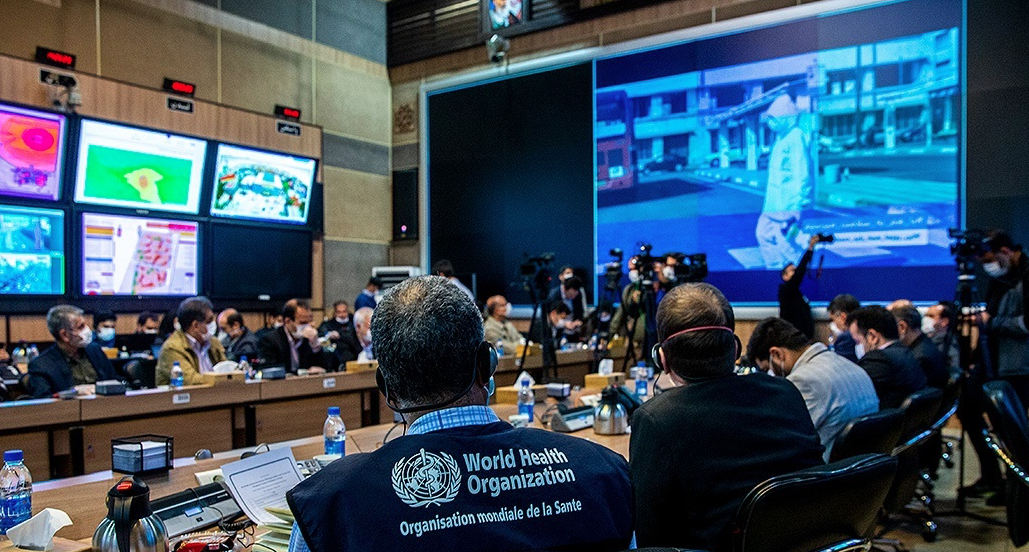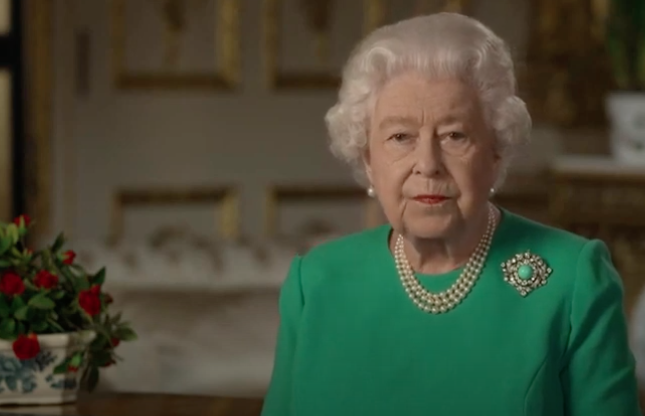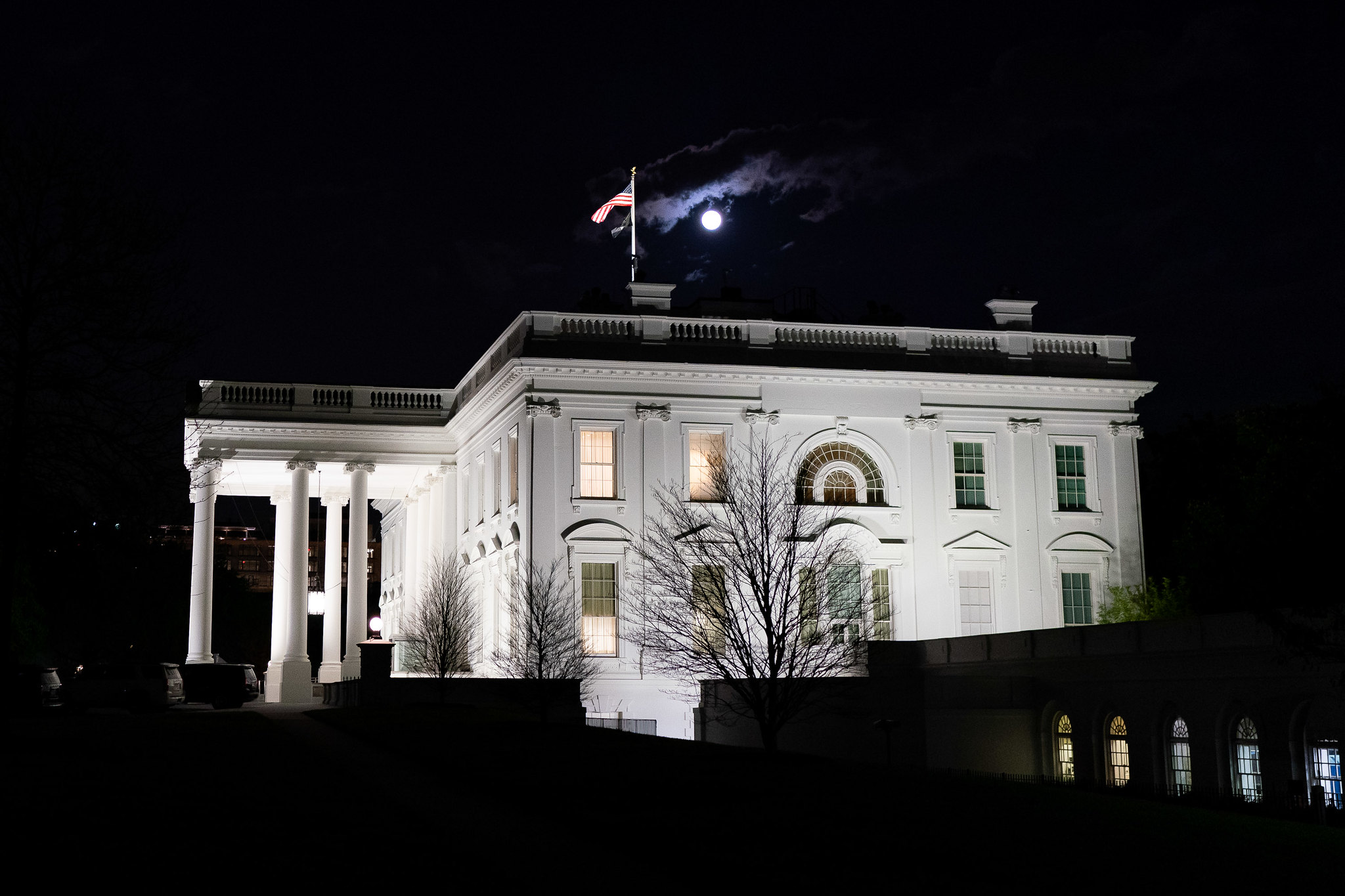Will human civilization simply resume course or will we recognize the need for numerous far-reaching reforms?

WHO representatives holding a joint meeting with Tehran city managers. (Fars News Agency, CC BY 4.0, Wikimedia Commons)
By Patrick Lawrence
Special to Consortium News
 Full restoration or fundamental change: As the Covid–19 infection and fatality curves at last begin to flatten, the entire world now asks which of these lies in our post–pandemic future. Will human civilization simply resume its course — its destructive, inequitable course, along which lies too much suffering — or will there be a sobering up, let us call it, a recognition that very far-reaching reforms are needed in too many spheres to count?
Full restoration or fundamental change: As the Covid–19 infection and fatality curves at last begin to flatten, the entire world now asks which of these lies in our post–pandemic future. Will human civilization simply resume its course — its destructive, inequitable course, along which lies too much suffering — or will there be a sobering up, let us call it, a recognition that very far-reaching reforms are needed in too many spheres to count?
Another way to pose the question: Is humanity any longer capable of self-correction? Or has the dreadful prevalence of neoliberal thinking denuded us — we in Western, post-democracies, that is — of all will in the face of circumstances that require it, along with a determination to act imaginatively and bravely?
No one anywhere can credibly turn in an answer to this question — not yet. But several months into the Covid–19 crisis, it does not seem we Westerners are able to unmoor ourselves sufficiently from what can only be called the perverse security of our too-familiar insecurities. We do not appear to trust ourselves to depart from the the hellishly precarious life for so many in a neoliberal world.
Expressions of hope for a different kind of future are everywhere. In here-and-there fashion, there are signs it is justified. I am not much for monarchies, but one must say the Queen rose impressively to the occasion in her “We will meet again” speech to Britain last week. The grainy frames of all those wartime films depicting British gumption seemed to flicker by. It was the right thing to do at the right moment, especially given the prime minister (whatever one may think of him) was then on oxygen in an intensive-care ward. It has had the desired effect.
At about the same time, the British government asked for volunteers to assist the National Health Service to attend to the most vulnerable Britons. Whitehall expected 250,000 hands to go up — and got triple that number of applicants. “A stirring display of British national solidarity,” the ever–Anglophilic New York Times called it. It was, one has to say.

Queen Elizabeth delivering her “We shall meet again” address. (YouTube still)
In this same line, the Financial Times published an editorial last week that has to be counted remarkable for what was said as well as who was saying it. “Virus lays bare the frailty of the social contract,” the headline announced. The paper of City of London stockbrokers then laid out a program worthy of left Labourites such as the late Michael Foote or the recently defeated Jeremy Corbyn. Here is the pithiest paragraph:
“Radical reforms — reversing the prevailing policy direction of the last four decades — will need to be put on the table. Governments will have to accept a more active role in the economy. They must see public services as investments rather than liabilities, and look for ways to make labour markets less insecure. Redistribution will again be on the agenda; the privileges of the elderly and wealthy in question. Policies until recently considered eccentric, such as basic income and wealth taxes, will have to be in the mix.”
Behind the FT’s editorial surprise lay another. The budget Prime Minister Boris Johnson made public in February turned British politics upside down. Here was a true-blue Tory committed to equalizing the UK’s economic geography — “leveling up” is Johnson’s phrase — to the benefit of disadvantaged regions that once were Britain’s industrial backbone. A high-speed rail line to the rust-belt North, worker-training programs, big new spending on the N.H.S. — Johnson’s plans amount to a kind of Tory populism, all-out Keynesianism from the party of big business.
It is tempting to read into these developments in the money center across the pond a harbinger of a fundamental shift — an imminent abandonment at last of the ruinous neoliberal economic model.
Were this so, it would stand as the single most positive outcome possible as the Covid–19 crisis recedes, whenever this proves to be. But any such interpretation would be incautious, especially in the American case. It is more likely these events will turn out exceptions proving the rule — the rule that nothing need change and nothing will.
Zero-Sum Nationalism
Rather than international unity in the face of a common challenge, the response to Coivd–19 among the industrialized post-democracies is zero-sum nationalism, every nation for itself and implicitly against all others. The virus’s savage spread has already left the European Union a shambles.
“Solidarity becomes a hollow mantra,” as Shada Islam, a prominent think-tank inhabitant, told The Guardian over the weekend. So have the Brussels technocrats punted the exceptional vision of the European project’s founders.
Prominent among the exceptions to this are those non–Western nations now coming selflessly to the aid of the afflicted in Europe as well as their allies in the non–West. This is another tragic irony in the making, a bitter one: The unenlightened responses to Covid–19 among the major Western powers are likely to leave the world more divided, not less, once the threat subsides — poor vs. wealthy, South vs. North.

Cuban doctors arriving in Italy to help during the pandemic. (Twitter @JoseCarlosRguez)
America’s domestic response to the Covid–19 onslaught makes Europe’s look like a model case study in some business school curriculum. Bottlenecks are everywhere. The trillions the Federal Reserve and Treasury have committed are stuck in clotted bureaucracies and reluctant-to-lend banks such that small businesses are going under and families are going hungry while private-equity firms are pushing their way into loan programs not remotely intended for them. Talk about free-for-alls.
Management expertise used to be part of America’s claim to exceptionalism. “Can do,” a phrase from the first half of the last century, proved out as the U.S. mobilized for the second world war. By the early–1940s American shipyards were floating one new Liberty ship a day, believe it or not. The rest of the world noticed. In the postwar decades, the missionaries of American management theory were welcomed as demigods across both oceans.
And now? Who can imagine anyone taking an interest in American management methods? Let’s put it this way: Surrendering our chosen-people consciousness, whenever we are finally required to do so, will inevitably be bitter. Maybe America’s multiple failures since Covid–19 hit will set this process in motion. This would be salutary, and of no small consequence either at home or in global affairs.
Two other issues, resolved or unresolved as they may prove, will define how well or poorly America emerges from this crisis. If Americans cannot get a socialized health-care system on the back of the Covid–19 fight, it is difficult to imagine what it will take to achieve health-care justice. If Americans cannot at least begin taming the Pentagon beast, ditto.
In neither case does one find cause for optimism, difficult as this is to admit. There is hope and there is power, and we know how these face-offs almost always end.
A Psychological Crisis

Full moon over the While House, April 7, 2020. (White House, Tia Dufour)
There has been no stirring display of American national solidarity, if you have not noticed. We are all sitting around — more or less in silence, so far as one can make out — while corporate captains and a corrupt administration chart the course forward. Why is this? Do not look for any answer in politics, or in economic advantage or disadvantage. The problem transcends all such considerations.
Covid–19 is a health crisis, and very soon it will be an economic crisis few alive today will be able to fathom. But it is above all a psychological crisis. It is essential to understand this.
Americans are no longer the people who sent a Liberty ship a day to sea. “Can do” is now closer to “can’t do,” “rather not,” or “why should I?” The drug of material consumption separates us from that earlier, no-less-critical time. Hula hoops and Mustangs have left us very sadly atomized, a vast “lonely crowd,” somnambulant. And helpless to escape ourselves. Let us not be mistaken: This is the true American crisis Covid–19 bares.
A friend forwarded an extract from a commentary Linh Dinh, the wonderfully freewheeling Vietnamese–American poet, published in The Unz Review over the weekend. It is pertinent to our case:
“With our plastic, skyscraping project imploding, perhaps we can devolve into a breed that’s simpler, muddier and gnarlier, less distracted so much saner, and more honest to those around us, since we can’t escape them. Perhaps we’ll become men again.
Or maybe not. Cowed by fear, oozing despair and dependent on those who have clearly betrayed us at each turn, we’ll become even more catatonic in our cells. After lockdown, we’ll stumble like blind fools, into this farce, again.”
Later in the day this same friend sent along a line from Don De Lillo’s “White Noise” and I pass it on:
“Here we don’t die. We shop. But the difference is less marked than you think.”
Patrick Lawrence, a correspondent abroad for many years, chiefly for the International Herald Tribune, is a columnist, essayist, author and lecturer. His most recent book is “Time No Longer: Americans After the American Century” (Yale). Follow him on Twitter @thefloutist.His web site is Patrick Lawrence. Support his work via his Patreon site.
If you value this original article, please consider making a donation to Consortium News so we can bring you more stories like this one.
The views expressed are solely those of the author and may or may not reflect those of Consortium News.
Before commenting please read Robert Parry’s Comment Policy. Allegations unsupported by facts, gross or misleading factual errors and ad hominem attacks, and abusive or rude language toward other commenters or our writers will not be published. If your comment does not immediately appear, please be patient as it is manually reviewed. For security reasons, please refrain from inserting links in your comments, which should not be longer than 300 words.

There’s a tendency in the EU to respond to a new challenge by donning blinders. We all tend to focus on the here and now ignoring any historical perspective or consideration that may delay prompt action or stifle quick solutions. Understanding the origin and root systems that contributes to this latest pandemic, requires a review of extraordinary events occurring over the last sixty years and search through a dark undertow of forces existing beneath European politic today.
Let’s begin by removing the blinders, examine the assassination(s) of political leaders, advocates of policies that would lift the indigent out of poverty. Here are two out of many, examples that anyone can draw from by research into CIA’s Gladio Programs. Italy’s Enrico Mattei who’s stated platform was to buy oil and gas from the cheapest sources and had he not been assassinated would have made Northern Italy far richer today. The infrastructure and distribution system to purchase oil and gas from Russia would by now, have grown into a network tapping Iranian’s gas fields as well, delivered into Italy and eventually into Northern Europe. Thus the argument that an EU would drain monies from the north to finance a debt ridden south would have been somewhat reversed. However the Seven Sisters and World Bank were hell bent on unifying a mixture of oil and water (pun), into the present EU amalgum. Now a debt ridden collage of economic Bantu stand(s) run by theories based on the “Austrian School” and Friedrich Hayeks’ clique. Then the more recent assassination of the popular German Banker, Alfred Herrhausen. A murder that coincided with the fall of the Berlin Wall and his announcement of an upcoming speech to be delivered in NYC titled, The New Horizon’s of Europe. Again his was another platform aimed at preserving a middle class, the privilege of each nation to print their own currency, backed by precious metals. A strategy aimed at supporting and strengthening highly skilled domestic workers and the commerce their finished products bring. But this idea was in direct opposition to The World Bank policy of finance capital, a concept of making money from money, meanwhile farming out manufacturing to slave labor camps in second and third world countries.
In summary a financially compromised EU translates directly into a disease prone EU and like a dog chasing it’s tail, a diseased Europe can only go broke trying to get well.
President Kennedy was a follower of John Maynard Keynes. He was on the right track during his maturing and his presidency. President Trump had the forward thinking idea (at least to some of us) of total cooperation with other countries that, in times like these, could have only sped up the resolve to handle this current situation. They weren’t allowed to…. can we now see the light and change our ways?
Aw, come on, Patrick. You are too worldly wise to think that either of those choices (nothing/radical reorientation) will happen. Leopards don’t change their spots and neither do the power brokers who have been running “The West” for centuries now. They are going to do what they have been doing for time out of mind – they will continue to do exactly what they had been doing before this dust up and will make such minor changes as may be required to keep the proles from rioting.
I gotta admit when you asked the question is humanity any longer capable of self correction? I laughed out loud. Patrick when has mankind (or womankind, for that matter) ever been capable of self correction? And, no, the Enlightenment doesn’t count. I would posit that the answer to the question is never. Mankind has been bouncing past one disaster after another, never learning a thing along the way, but being tough enough to survive the consequences of our own stupidity.
The problem that “The West” ™ has is that it has fallen, as Venice did, into the Oligarchy trap. The savage Darwinian Capitalism that the US worships allegedly allows the best to rise to the top. That’s, ah, poppycock. It actually allows the greediest, least moral, most self centered, most ruthless, cruelest, and least deserving to “rise” to the top and become in control.
To understand what will come next, I think that one would be better advised to consult Gibbon in lieu of Linh Dinh. The United States is tracking the Decline and Fall of the Roman Empire in eerie parallel down to and including the incompetence, degeneracy, and stupidity of the governing elite.
Spot on Jeff, nothing will change as far as the Empire is concerned. The Chinese are very convinced that the C-19 is US biowarfare. For me it seems like deja vue, the Opium Wars, when China was caught with its pants down ( a feeble military and a joke Navy ) and the C-19 outbreak maybe leading to the same type of aggro from Uncle Sam as was produced by the Rothschild controlled British East India Company ( alias the British Empire) a couple of centuries back. China has no defence to the US war machine. Same mistake. What can we here in Britain do to stop this ? Nothing at all, we are the the American Empire’s pooch.
Excellent article.
As for the response of the British people to their health crisis, it is no surprise that the UK Government, after having eviscerated its NHS, is now forced to rely on public volunteerism- which, is a perhaps not-unintended consequence of its neo-liberal privatization agenda.
No republic is immortal and ours is approaching the end of its natural life.
We can begin the process of reconstituting it now, or wait for it to collapse, pass through an inevitable military dictatorship–a process already well advanced–and suffer, unnecessarily, for decades.
Anyone for a reconstitutional convention?
Bravo for recognizing the inevitable military dictatorship that is around the corner. Things will get much worse before they get better. What worries me is how much better can they get in an American antiintellectual environment??
We are all hungry ghosts.
The underlying cause of US corruption and militarism is the economic control of mass media and elections. Those who rise in an unregulated market economy are the greedy, corrupt demagogues and opportunists. They have no concept of public service: organized crime is their world; causing mass suffering aggrandizes and fulfills them.
Yes, the US must tame the “Pentagon beast” for the MIC uses money needed for new programs. But the underlying problems are the mass media of gold, creating the fake threats that tyrants have needed throughout history to pose as protectors, and the elections of gold, bribes from the MIC and WallSt to political parties of tyrants.
To build a better society we must restore democracy, by freeing mass media and elections from gold. But those are the tools of democracy, so it cannot be restored by democratic means.
Col. Sjursen notes today the unusual collapse of Portugal’s empire 1960-1974, when its leftwing military seized control and restored democratic institutions. Without public control of the tools of democracy, without the possibility of a dark horse president able to seize power to get gold out of mass media and elections, a revolt of brilliant patriots in the military would be a blessing. He does not encourage that, nor does it seem likely that brilliant patriots would still be in the military, or that those who might seize power would be less corrupt than the present tyrants. An angry populace might force them to implement some demanded programs, but the usual tyrants could do that sooner, both expecting to dismantle it all in the next manufactured emergency.
Do you not think we are, and have been, long before this virus crisis, ‘An angry populace’?
Anywhere along our polarized, identity-centered political spectrum, the collective individuals of our society have been angry with the establishment, in one form or another, from virtually perpetual betrayal on all fronts in their desires for and efforts at meaningful change.
But there is little hope for change, no matter the level of anger, due to the complete control of all three branches of our so-called government and their supporting propaganda media.
@Tennegon, I quite agree, although it would take far more public anger for enough of the US to take risks or organize for major changes in government. Almost all will play mass media games and let others take the risks, even if they lose loved ones and almost all possessions. They must see violence, starvation, or perhaps conscription, to take any personal risk.
Fabulous essay. Thanks.
I agree wholeheartedly with this. If we here in the U.S. cannot turn this COVID-19 crisis into enacting Medicare-for-All there’s no hope for an eventual single-payer system.
You need a lot more than that- a much more equal society with far less wealth and control by the 1% or 0.1% as now.
“They must see public services as investments rather than liabilities, and look for ways to make labour markets less insecure.”
Shocking, coming from the Financial Times; a statement that is the antithesis of neo-liberalism. The rest of this opinion piece is a model of how to appeal to the average Joe and Jane. It uses terminology like that of FDR and the New Deal; more broadly appealing than some of what was floating around the US primary campaign.
The new British budget is another eye opener, though may be a wee bit small, coming from the Tories who have spent the last several decades trying to destroy the NHS and anything public. Is this a “come to Jesus moment”?
I certainly hope Patrick’s examples are a harbinger of the future; but first the orange apocalypse will have to go.
The FT has just published a wonderful article by Arundhati Roy on the crisis and the West and India, with photos. Quite startling.
Thank you Mr Lawrence for this article. I have little hope that things will improve, i.e. become more “national,” become more “nationalized” (Brit speak only?) particularly, but not only, Medical “care” (in quotes because in my experience it is not care but profit extraction together with ignorance) for all.
As for the country co-operating with other countries (true internationalism) rather than imposing, via drone and the end of a gun/bomb or siege warfare – I seriously doubt it. I gather from an NYT online feed that Russia is once more in the sights of the Cold Warriors (including – horrendously – those who were born after the end of that ridiculous, dangerous period): Apparently we are supposed to believe that the “Kremlin” and Putin have been making war (spreading lies/mis or dis information) against “American Science.” Is there no end to the lies and disinformation, the distractions and delusions, the anti-Russia (or China or Iran) that the MSM and the Dems *won’t* tell and their supporters believe???
And as for working together within – Highly unlikely. Caught between the social isolation caused by never-ending smart phone use worsening under the conditions of stay at home, the deliberately created “progressive” social, cultural divisions, each with their own agenda (and so far as I can tell only African-, Native- and Latino- Americans focus much on socio-economic inequalities and incarceration iniquities and grotesqueries for very good reason being, as they are, on the very sharp end of these along with long-standing de facto segregation and racism), and paleskin exceptionalism and innocence (to borrow from Sirvent and Haiphong), I do not see any real, not any good for the general population change happening. Unfortunately, dreadfully.
Divide and conquer.
“Here we don’t die. We shop. But the difference is less marked than you think.”
… from Don De Lillo’s “White Noise”.
Read a meme the other day that resonated with me … with Covid restricting commerce, isn’t it (not) funny that the economy crumbles when we buy only what we need?